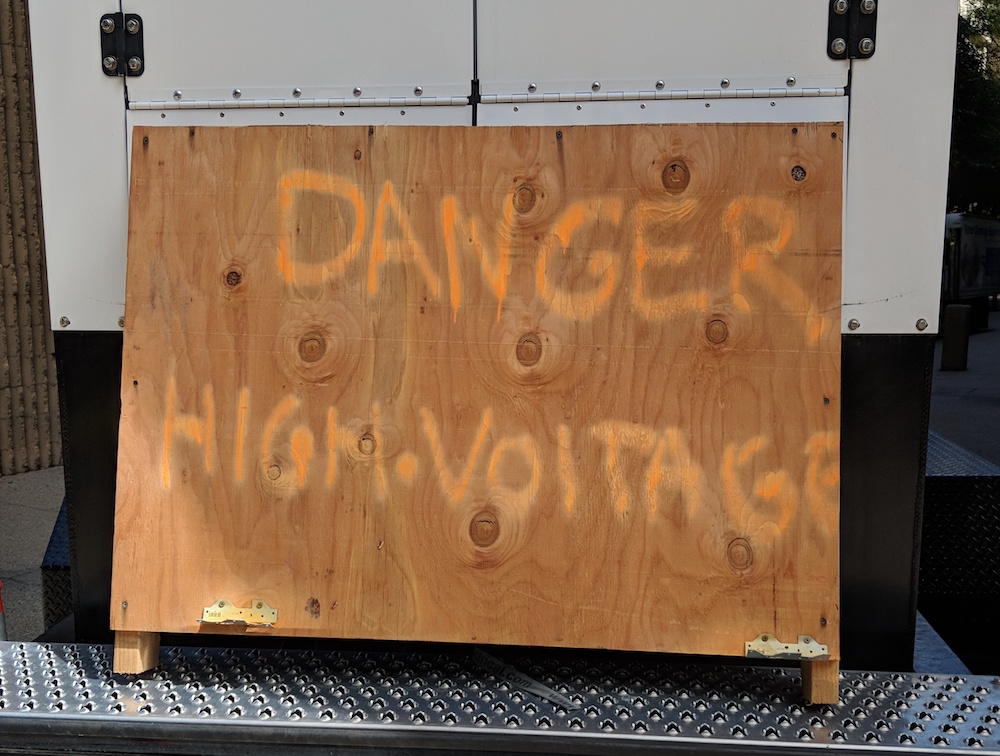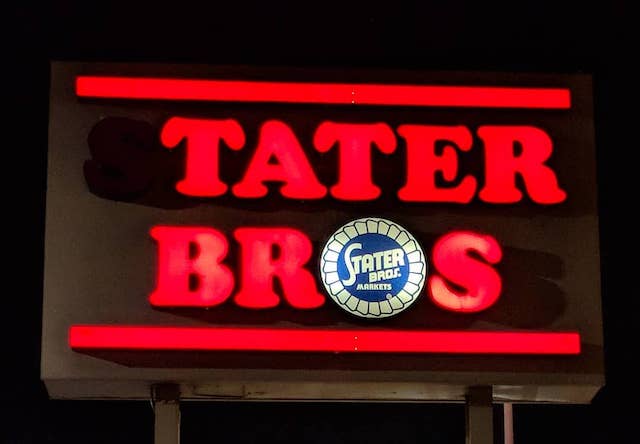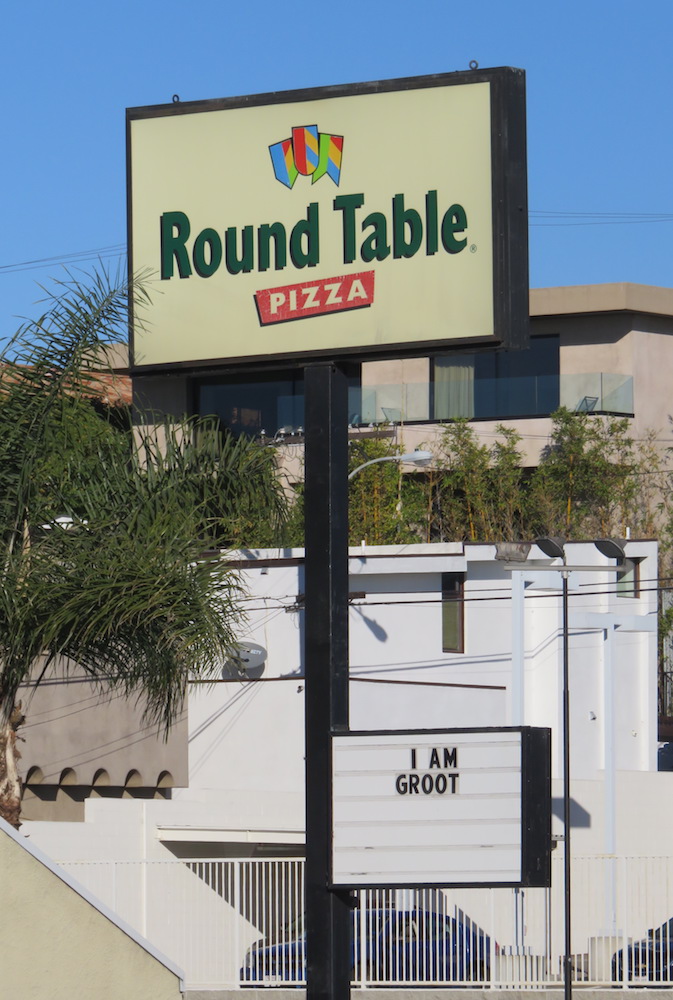Minecraft’s hierarchy of needs:
- Tools
- Shelter
- Light
- Food
Once all those are taken care of, you can start exploring and building.
Minecraft’s hierarchy of needs:
Once all those are taken care of, you can start exploring and building.

I’ve never understood the tendency to write in all-caps except for the letter L, the one letter whose lower case looks exactly like another letter’s upper-case. But it’s surprisingly common.
Fortunately I don’t think anyone’s going to pull a “Cancel that, it says HELF” on this warning sign!

Found on a case of bottled water whose marketers really hope you don’t understand how pH works.*
I bet when you heat it up, it goes beyond hot, and actually speeds up its molecular motion!
*You make water alkaline by adding OH– ions.
I’ve seen The Last Jedi twice now. I’m still not sure how I’d rank it, but the performances are way better than most of the prequel trilogy, and the story is the first theatrical Star Wars to break new ground in ages.
I’ll admit there’s a lot of stuff that happened that I didn’t like, but it made sense within the story context, and it was done in an interesting way. And there was a lot of cool stuff too…including a ton of blink-and-you’ll-miss-it details that I missed the first time through.
I learned years ago that “stuff happened that I didn’t like” and “it was badly made” are two separate comments on a movie, TV show, book, or other work of art.
Do I like the reason Luke left? No, but it makes sense. (A lot more sense than him joining the Dark Side with a resurrected clone of Darth Sidious, TBH.) When you think about it, it’s probably the best explanation they could have come up with for why Luke would decide that he’s part of the problem and remove himself from the galactic stage. It would have to be something majorly traumatic that he would blame himself for.
Do I like that the Resistance command don’t trust each other enough to share plans? No, but again it makes sense under the circumstances, and it feeds into the themes.
The Last Jedi feels different from the other Star Wars films. It’s a lot of separate threads that seem mostly unconnected but come together toward the end into a clear picture. Rey’s journey is critical, as is Kylo Ren’s, as is the link between their journeys. Luke’s reasons for being on the island, and his triumphant return, are tied deeply into the plight of the Resistance as it battles the loss of hope, which we see in the slow attrition of the fleet chase, the breakdown of trust within command, and finally the point where they’re reduced to one small band making what could well be a last stand.
And the trip to Canto Bight? For all the whining about it, I think it’s thematically more important than the chase. It shows people taking advantage of both sides of the conflict, and it shows ordinary civilians being oppressed…and that epilogue.
The First Order does everything they can to snuff out that spark of hope, and almost succeeds…but it flares again. We see it with Luke, and with Rey, but their actions only preserve what’s left. It still feels like a hollow victory until we see the epilogue and realize that the spark has taken hold, and is growing again — and that’s inspired as much by one kid’s encounter with Finn and Rose as the legend of Luke Skywalker.
Take out Canto Bight and you take out the epilogue. Take out the epilogue and you’re left with an unremittingly bleak story. Bleaker than Revenge of the Sith…but only* because we already knew where RoTS had to go.
This is the first time since 1983 that there’s been real uncertainty about the future in a Star Wars movie. We didn’t know where The Empire Strikes Back was going, or Return of the Jedi. The prequel trilogy had a lot of surprises along the way, but we knew it would end with Anakin turning to the dark side and helping wipe out the Jedi, Palpatine becoming the Emperor, and the Republic becoming the Empire. I loved Rogue One, but again, we knew what it was building up to. And The Force Awakens was too focused on bringing fans back into the fold with familiarity to break new ground.
The Expanded Universe quickly set up a new status quo and told episodic stories within that setting. Some changes would stick over time, but you knew at the end of the day Leia was rebuilding the Republic, Luke was rebuilding the Jedi, and so on. Eventually they broke out of it and started making big changes with New Jedi Order, and subsequent stories that moved toward the more distant future of Legacy, but it was only a secondary canon, blessed but less official than the movies.
Now? We have no idea what might happen next. We can hope that the First Order will be defeated, because that’s the kind of story Star Wars is, but we have no idea what the cost will be, or who will make it through to the end, who might redeem themselves or turn to darkness.
And I have to wonder if that’s part of the backlash: Star Wars has been a familiar place for decades, and now that certainty is gone.
Cool stuff
So, some of those great details that I didn’t notice the first time through:
*Well, that and Lucas didn’t manage to convey as much emotional heart in the prequels as he did in ANH or the other directors did w/ Empire & Jedi. They all felt slightly detached. And I’ve seen the actors in enough other movies to know it wasn’t their fault.

Some dudes just really like potatoes, you know?
SDCC Blog reports that Comic-Con International is expected to be the San Diego Convention Center’s top economic generator of 2018, “with 130,000 attendees and an estimated $147.1 million in regional impact.”
That’s a far cry from 2008, when the con was derided as “decidedly low-rent” and generated “only” $41.5 million, half the impact of the top biotech conference for the year. The rest of the top events are still medical conferences, but the #2 event, a conference by the Society for Neuroscience, is estimated to bring in $88 million.
That said, SDCC still brings in fewer dollars per person than those medical conferences (130K attendees for Comic-Con, 30K for the neuroscience event). Fans saving up all year to go somewhere for fun can’t compete against professionals with expense accounts, after all.
But it’s nice to see Comic-Con recognized as a vital contributor to San Diego’s economy instead of an embarrassing side note.
Groot reminds us that Net Neutrality is critical to internet freedom, and we should call Congress TODAY, before Thursday’s FCC vote to eliminate the only thing preventing your cable or phone company from blocking competition, burying news they don’t like, and shaking down startups.
Unless you trust your cable company to have your best interests at heart, head over to Battle for the Net and get Congress to remind the FCC that they work for you, not Verizon and Comcast.
Amazing what Groot can fit into just three words, isn’t it?
